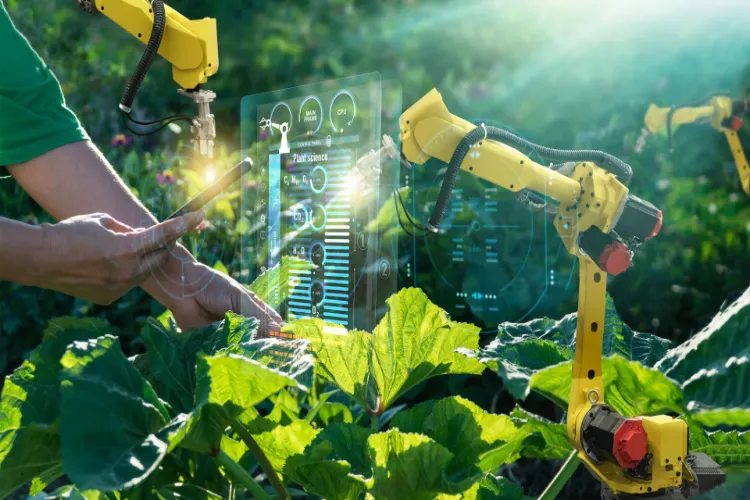
New Delhi
Researchers from the National Institute of Technology (NIT) in Rourkela and the Azerbaijan State University of Economics, Turkey have studied insights on how digital tools and renewable energy can transform agricultural productivity and sustainability in 27 developing countries, according to officials.
The research team has conducted the study covering 27 developing countries, including India, revealing how internet use, mobile connectivity, renewable energy, agricultural land and fertiliser consumption collectively shape the nature of food production in a rapidly-changing world.
The findings of the research have been published in the prestigious "Technology Analysis and Strategic Management" journal.
According to Narayan Sethi, Professor, Department of Humanities and Social Sciences, NIT-Rourkela, in the current technology-driven environment, no aspect of progress is untouched by digital technologies.
"From how we communicate and work to how we produce food and meet our energy needs, everything is experiencing a revolution driven by the internet and renewable energy. The internet in agriculture has changed how we produce, market and consume food. Farmers can now check market rates before selling their produce, compare fertiliser prices online and learn sustainable-farming techniques," Sethi said.
"In many rural communities, a simple mobile phone can bridge the gap between farmers and markets, improving transparency, bargaining power and overall efficiency.
Along with emerging technological trends, the growing shift toward renewable energy is also changing agricultural practices. Solar-powered irrigation is potentially helping smallholder farmers overcome the challenge of irregular electricity supply," Sethi added.
Speaking about how the internet and renewable energy are influencing agriculture, Sethi said the agricultural sector is a major source of employment and income in developing countries like India. However, it is also prone to varying effects of climate change.
"Thus, the government can prioritise training programmes for encouraging sustainable farming through multiple cropping systems, irrigation techniques and the appropriate use of fertilisers. Additionally, digital literacy, subsidised or zero-cost credit facilities and financial inclusion should be prioritised to support small- and medium-sized farm holders for higher agricultural productivity from technological advancement and renewable-energy use.
"With the changing global scenario, higher investments supporting ICT inclusion, renewable-energy use and sustainable land-use practices are crucial for strengthening the agri-food sector to enhance food security, economic growth and environmental benefits in developing countries," he said.
The research team used advanced econometric methods to analyse agriculture-related data from 27 developing countries, spanning 2000 to 2021. The countries are India, Argentina, China, Pakistan, Ghana, Malaysia, Togo, Bangladesh, Indonesia, Nigeria, Thailand, Bolivia, Nicaragua, Tunisia, Botswana, Jordan, Turkey, Sri Lanka, Panama, Tanzania, Costa Rica, Mexico, the Philippines, Kenya, Dominican Republic, Mozambique and El Salvador.
The researchers found that internet use, mobile phones and renewable energy each individually boosts agricultural productivity. However, when used together, their combined effect can sometimes be detrimental. This is mainly due to challenges such as unreliable electricity, limited internet connectivity and low digital literacy in rural areas.
Litu Sethi, research scholar, NIT-Rourkela, noted that agriculture is the backbone of developing countries, accounting for more than 50 per cent of the workforce engaged in farming activity directly or indirectly.
"Sustainable agricultural practices can create win-win situations by enhancing socio-economic conditions and positively contributing to the environment. Governments in developing countries should invest in ICT infrastructure to expand internet access for rural farmers and promote digital literacy through training programmes," Sethi said.
READ MORE: Tariq Alam's school in Kapali has changed the destiny of workers' children
"Policies that provide free or subsidised mobile services can help smallholder farmers access vital information on markets, weather and soil health. Also, policies encouraging greater adoption of renewable energy for irrigation and cold storage, supported by collaboration among the government, renewable energy firms and telecom providers, need to be prioritised. Integrating renewable energy with digital tools is key to achieving sustainable agricultural productivity," Sethi added.
